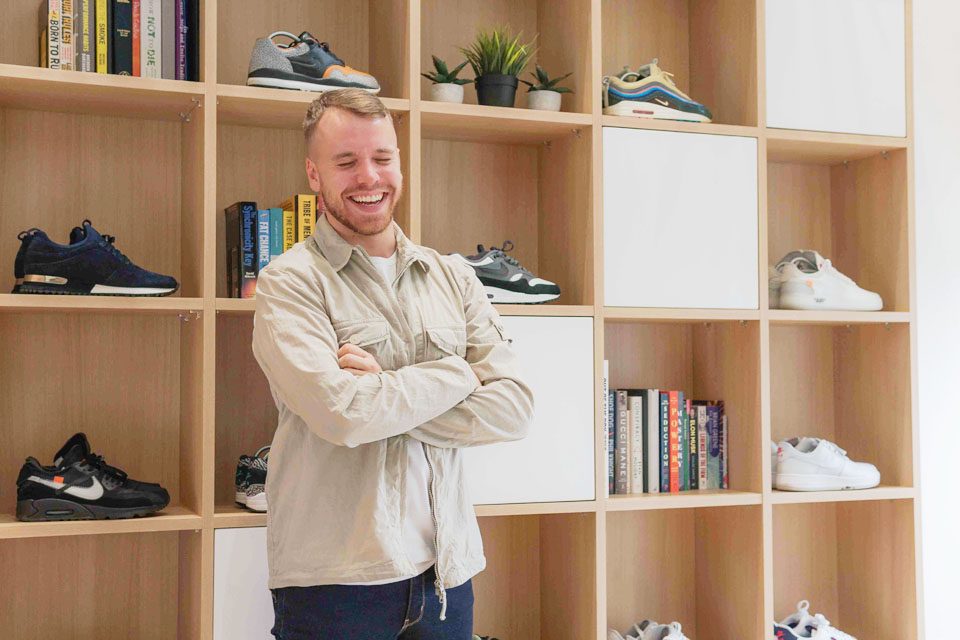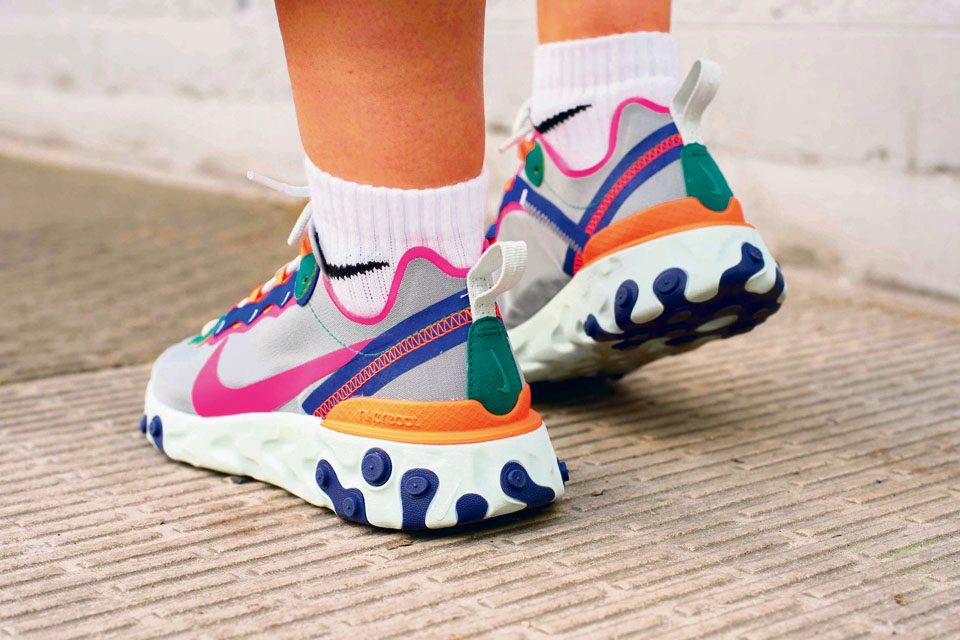The founder of The Sole Supplier on switching up how we buy footwear
Earlier in June, thousands of people queued up outside shoe stores to buy a new pair of trainers designed by musician Kanye West. The latest set of Adidas “Yeezys” cost £180 each.
But many of the people buying these shoes weren’t just interested in fashion, but in making a profit. Soon after the footwear went on sale, they were being resold online for twice the price.
This is just one example of how shoes – especially new trainers and sneakers from brands like Converse, Nike, and Puma – are big business. According to George Sullivan, founder of The Sole Supplier, the resale market for trainers is worth $2bn. Sullivan would know – before setting up his company he was part of this resale trend.
“Just before I started The Sole Supplier, I was buying shoes and reselling them,” he tells me. “For shoes that were valuable, I’d queue up each week outside stores in London, get the shoes – hopefully two or three pairs – and resell them online. And now, reselling is huge. Kids are doing that every day.”
Sullivan set up The Sole Supplier in 2013. Originally it was just a website, telling people about the latest news and rumours about trainers, as well as useful information such as when and where people could buy shoes.
But the company is now much more than that – Sullivan and his team create videos and podcasts all about the latest shoes, and also have an app that can recommend and handpick products for fans. The Sole Supplier works with around 50 retailers, and acts as a shopping portal enabling people to pick the shoes they want – it delivers over £20m worth of sales to retailers annually.
It has become a thriving online business, with a dedicated online following: its YouTube channel has 100,000 subscribers, its Facebook page has 457,000 “likes”, and its two Facebook groups have around 50,000 members. In total, the company claims to engage with almost two million users across its site, app, and social channels each month.

The company’s main source of income is affiliate marketing, where The Sole Supplier receives commission whenever a consumer clicks on a link and then buys something.
“Digital community is a big thing for us,” Sullivan says. “Our Facebook groups are a space where people buy and sell and discuss what’s coming up. We use that also as a channel for us to help market. We post our news content there, release dates, and that community is buzzing and thriving – it’s huge.”
But where did the idea come from? Five years ago, Sullivan was keen to start an online business, and gave this his full dedication, reading and learning as much as he could about web design and digital marketing.
“At that point, I’d stopped drinking and stopped going out, because I knew I wanted to start an online business, but I wasn’t sure what it was going to be,” he admits.
At the same time, he was working in recruitment, and like many young people when they start earning decent money after leaving school, he was splashing his new-found cash on luxury items. In Sullivan’s case, it was shoes.
“They were a classic part of the outfit, whether they were smart shoes or trainers. I started having this interest in buying a new pair of shoes each week, and I saw that as a measure of my success. I know that’s a crazy way to measure success, by spending money on something material… but at the time I was like ‘okay, I’m earning, I can buy a new pair of shoes, great, I’m doing well’.”
As he developed this habit, he also got into the reselling scene.
“In the process of buying all these shoes and trying to find out information about them, I realised that other people were doing this. I was meeting a lot of people when going to buy these shoes, and they had the same problems I had: where can I get that information in the UK, who’s stocking the shoes and when are they being released?”
Realising that there was a demand for this information, Sullivan diverted his passion for collecting shoes into launching a business that could cater to his audience.
At the start, The Sole Supplier was a blog that he built using WordPress in his parents’ study. He was writing posts in his bedroom in the morning or at work during lunch, and his parents, while supportive, were a little sceptical.
“My dad really wasn’t sure that it was going to be successful. He was like ‘look man, these are just trainers, is the market big enough?’” Sullivan recalls.
“He had his own business in the traditional print industry, and that actually failed because digital print took over – so I learnt a lot from him, which was probably where I got a lot of my inspiration from.”
The Sole Supplier has since moved out of Sullivan’s parents’ house and into offices in Dartford, where he and his team are developing new content and tech. Right now, they’re working on a search engine for footwear that can compare and recommend products, and are launching a third iteration of their mobile app.
“The app we’ve got now is world-class for understanding the customer. We can understand exactly what shoes they like, down to the brand, the silhouette, the colour, what size they are. And then that allows us to tailor the app and recommendations perfectly to what they’re looking at,” he says.
I get the sense from Sullivan that he’s got a lot of restless energy. He talks a great deal about the importance of self-improvement, development, and trusting your instincts. He’s also keenly aware – possibly because of his father’s business experience – of the need to stay ahead constantly in a competitive space.
“If you’re not investing in your technology, it’s very possible that another site could overtake you. You can’t be complacent in a technical or digital business, because you need to be constantly investing back in your tech, which over the past year or two we have done heavily to rebuild the site and the app to ensure that we are the market leader for people trying to find footwear,” he says.
“It’s a fast space. We have to be innovating constantly.”
Before speaking to Sullivan, I had no idea just how big trainers really were, especially as a fashion statement. He’s also a great example not just of someone who was able to turn their personal interests into a new company, but also the perseverance and force of will required to make that company thrive.
